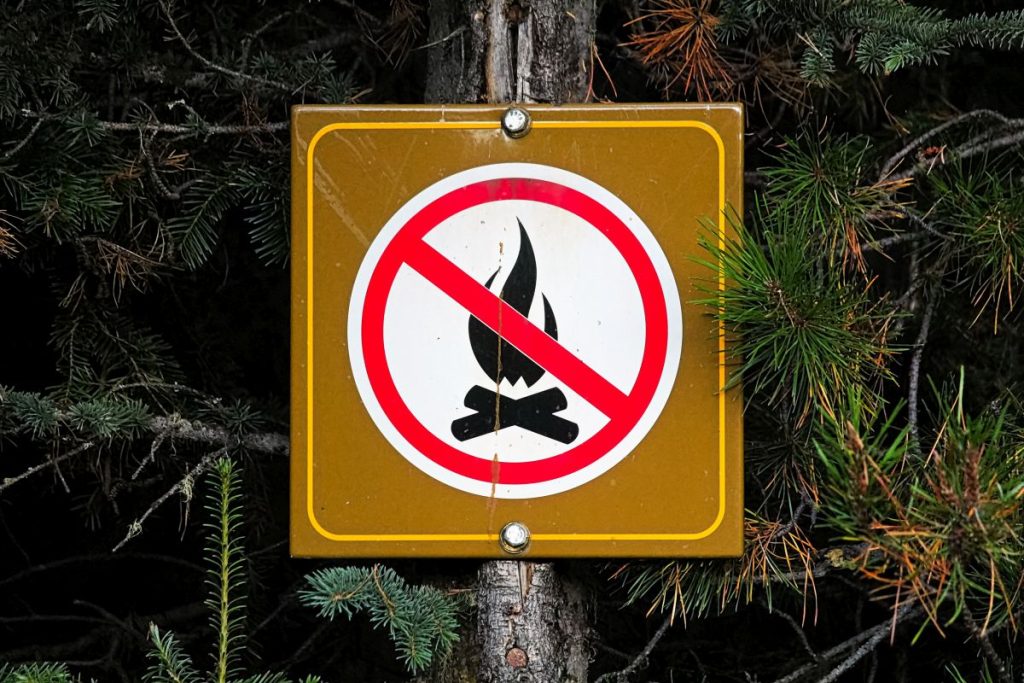Camping is one of those magical experiences where you escape the daily grind and reconnect with nature. But before you pitch your tent or park your RV, there’s something super important you need to know—understanding camping regulations and restrictions.
Trust me, the last thing you want is to set up the perfect campsite only to be told you have to move because of some rule you didn’t know about!
Why Camping Regulations Exist
I get it. Rules can feel like a buzzkill when all you want to do is enjoy the great outdoors. But camping regulations aren’t just there to annoy you—they exist to keep nature beautiful, wildlife safe, and campers (like you and me) out of trouble.
As an Amazon Associate, I earn from qualifying purchases. Some of the links in this article are affiliate links. This means that, at zero cost to you, I will earn an affiliate commission if you click through the link and finalize a purchase.
Ever heard of someone getting fined for cutting down a tree for firewood?
Yep, it happens!
Many rules are about protecting the environment. Overcrowding, littering, and unauthorized campfires can do serious damage to nature.
Plus, regulations help keep everyone safe—because no one wants to wake up with a bear sniffing around their tent due to improper food storage.
Types of Camping Restrictions You Might Face
Different camping spots come with different rules, and it’s not a one-size-fits-all situation. Here are a few common restrictions you might run into:
Campfire Rules
Fire restrictions can change depending on the season, fire danger levels, and specific park policies. Some places allow campfires in designated rings, while others have total fire bans. If you’re caught with an illegal fire, you could be looking at a hefty fine.
Camping Permits and Fees
Many national parks and state campgrounds require a permit, which means you need to plan ahead. Some places have a first-come, first-served system, while others require you to book months in advance. And don’t assume camping is always free—fees can range from a few bucks to over $30 per night, depending on where you go.
Stay Limits
Ever thought about setting up camp indefinitely? Well, some places have stay limits, usually ranging from 7 to 14 days. This keeps spots open for other campers and prevents long-term damage to the area.

Wild Camping (a.k.a. Dispersed Camping)
If you prefer camping away from the crowds, dispersed camping might be your thing. But even then, there are rules. Many national forests allow it, but you usually need to stay at least 100 feet from water sources, pack out your trash, and avoid restricted areas.
Quiet Hours and Behavior Rules
Think about your fellow campers—nobody wants to hear your generator roaring at 2 AM or loud music blasting across the lake. Many campsites enforce quiet hours, typically from 10 PM to 6 AM.
A Personal Camping Oops Moment
I’ll never forget my first big camping trip with friends. We were so excited that we set up our tent in a gorgeous, secluded spot—only to realize later it was in a “no camping” zone.
A park ranger showed up and, luckily, just gave us a warning.
We had to pack up and move, which was a total pain in the dark. Lesson learned: always check the rules first.
How to Stay on the Right Side of Camping Regulations
So, how do you make sure you don’t accidentally break the rules? Here are a few tips that have saved me from headaches:
- Check official websites. Whether you’re heading to a national park, state park, or forest, look up their camping regulations online before you go.
- Talk to rangers. Park rangers are a goldmine of information. If you’re unsure about something, just ask.
- Follow Leave No Trace principles. Pack out what you pack in, respect wildlife, and leave nature as you found it.
- Respect local fire bans. Don’t assume you can have a fire just because you see someone else with one.
- Get your permits early. Some spots fill up fast, especially during peak seasons.
A Final Thought About Understanding Camping Regulations and Restrictions
Camping is all about adventure, freedom, and fun—but knowing the rules helps ensure that your trip stays stress-free.
Nobody likes dealing with fines, angry rangers, or having to pack up and move in the middle of the night. So do yourself a favor and check the regulations before heading out. Trust me, it’s worth it.
Now, what’s your craziest camping rule mishap? Ever been caught off guard by a restriction you didn’t know about?
